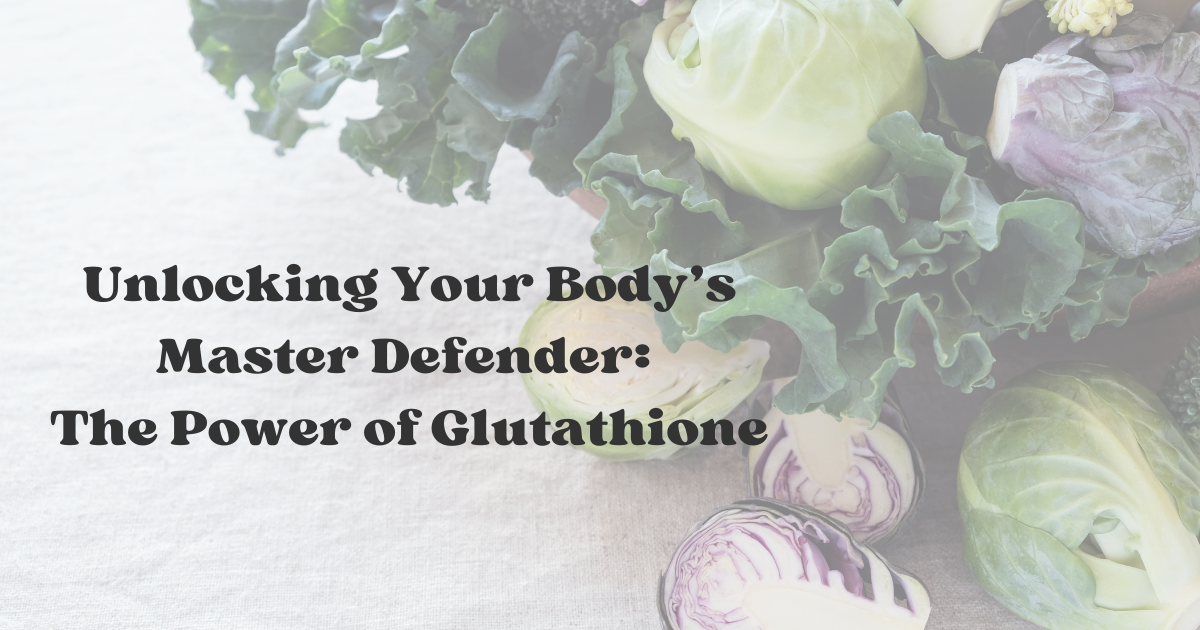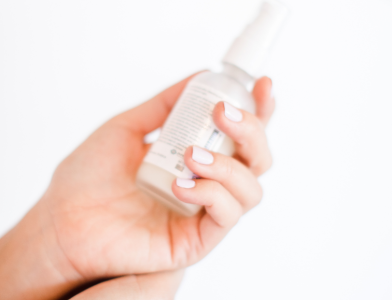Have you ever wondered why some people seem to age faster than others, even when they’re the same age? The answer might surprise you. Aging has less to do with time, and more to do with cellular damage, oxidative stress, toxins, and inflammation. Thankfully, our bodies are equipped with a powerful molecule that can help defend against these threats: glutathione.
What Is Glutathione?
Glutathione is your body’s “master antioxidant.” It’s a small but mighty tripeptide, made of three amino acids: glutamate, cysteine, and glycine. Unlike vitamins, your cells actually make glutathione on their own—primarily in the liver and kidneys. Glutathione plays a critical role in detoxification, protecting your cells, and keeping you resilient in a world full of toxins.
Where Is Glutathione Found?
Glutathione exists in every single cell of your body, but the highest levels are found in your liver, kidneys, ovaries, and testes. These organs are central to detoxification and reproduction, both essential for health and survival. You’ll also find elevated levels in the lungs and brain, where oxidative stress is greatest.
Why Glutathione Matters
Your glutathione levels are critical for staying healthy and slowing down aging. Over time, chronic exposure to stress, poor sleep, processed foods, alcohol, and environmental toxins can drain your body’s glutathione stores, making you more vulnerable to
- Neurodegenerative diseases
- Pulmonary issues
- Immune and cardiovascular disorders
- Chronic inflammation
How Glutathione Protects You
- Neutralizes oxidative stress: Glutathione mops up free radicals, which can damage cells, DNA, and proteins.
- Detoxifies chemicals: In the liver, glutathione binds to toxins, making them easier to excrete.
- Regulates inflammation: It helps fine-tune inflammatory responses, keeping your immune system in balance.
- Supports immunity: Glutathione guides immune cells to where they’re needed and prevents them from attacking healthy tissues.
- Aids in cellular repair: It supports enzymes that repair DNA and restore cell health.
Signs Your Glutathione May Be Low
Your body often sends early warnings if your defenses are running low. Watch for symptoms like:
- Persistent fatigue
- Brain fog
- Slower recovery from exercise or illness
- Chronic inflammation or joint pain
- Frequent skin issues
- Heightened sensitivity to alcohol or chemicals
Boosting Glutathione Naturally
Want to help your body maintain healthy glutathione levels? Focus on these high-impact strategies:
- Eat sulfur-rich foods: Load up on broccoli, kale, onions, and garlic.
- Get quality sleep: Deep rest helps repair and restore antioxidant defenses.
- Exercise regularly: Moderate movement boosts antioxidant production—avoid overtraining.
- Limit alcohol and refined sugars: Both can deplete your glutathione.
- Use healthy stressors: Sunlight (in safe doses) and sauna can stimulate antioxidant recycling.
Should You Supplement?
Supplements may help, but not everyone needs them. You can support glutathione production indirectly with nutrients like N-acetylcysteine (NAC), alpha lipoic acid, selenium, and vitamin C. Some may consider direct glutathione supplements (such as liposomal forms) or even IV treatments prescribed by medical professionals.
Always consult your doctor before changing your routine or adding any supplement.
The Bottom Line
Glutathione is an essential yet overlooked molecule for healthy aging and resilience. Support it by making smart lifestyle choices, reducing your toxic load, and working with your body’s built-in systems for repair and defense. With care and intention, you can help your body stay stronger, longer.
💡 Want more help with toxins?
Join the Low Tox University where you will learn how to detox your home from toxins and master ingredient labels without costly products or needing a PhD. Click here to join.
References
- Jariwalla RJ, Lalezari J, Cenko D, Mansour SE, Kumar A, Gangapurkar B, Nakamura D. Restoration of blood total glutathione status and lymphocyte function following alpha-lipoic acid supplementation in patients with HIV infection. J Altern Complement Med. 2008 Mar;14(2):139-46. doi: 10.1089/acm.2006.6397. PMID: 18315507.
- Wu D, Cederbaum AI. Alcohol, oxidative stress, and free radical damage. Alcohol Res Health. 2003;27(4):277-84. PMID: 15540798; PMCID: PMC6668865.
- Gohil K, Viguie C, Stanley WC, Brooks GA, Packer L. Blood glutathione oxidation during human exercise. J Appl Physiol (1985). 1988 Jan;64(1):115-9. doi: 10.1152/jappl.1988.64.1.115. PMID: 3356628.
- Iskusnykh IY, Zakharova AA, Pathak D. Glutathione in Brain Disorders and Aging. Molecules. 2022 Jan 5;27(1):324. doi: 10.3390/molecules27010324. PMID: 35011559; PMCID: PMC8746815.
- Di Giacomo C, Malfa GA, Tomasello B, Bianchi S, Acquaviva R. Natural Compounds and Glutathione: Beyond Mere Antioxidants. Antioxidants (Basel). 2023 Jul 18;12(7):1445. doi: 10.3390/antiox12071445. PMID: 37507985; PMCID: PMC10376414.
- Dröge W, Breitkreutz R. Glutathione and immune function. Proc Nutr Soc. 2000 Nov;59(4):595-600. doi: 10.1017/s0029665100000847. PMID: 11115795.
- Farhat Z, Browne RW, Bonner MR, Tian L, Deng F, Swanson M, Mu L. How do glutathione antioxidant enzymes and total antioxidant status respond to air pollution exposure? Environ Int. 2018 Mar;112:287-293. doi: 10.1016/j.envint.2017.12.033. Epub 2018 Jan 8. PMID: 29324239; PMCID: PMC5899033.
- Pizzorno J. Glutathione! Integr Med (Encinitas). 2014 Feb;13(1):8-12. PMID: 26770075; PMCID: PMC4684116.



